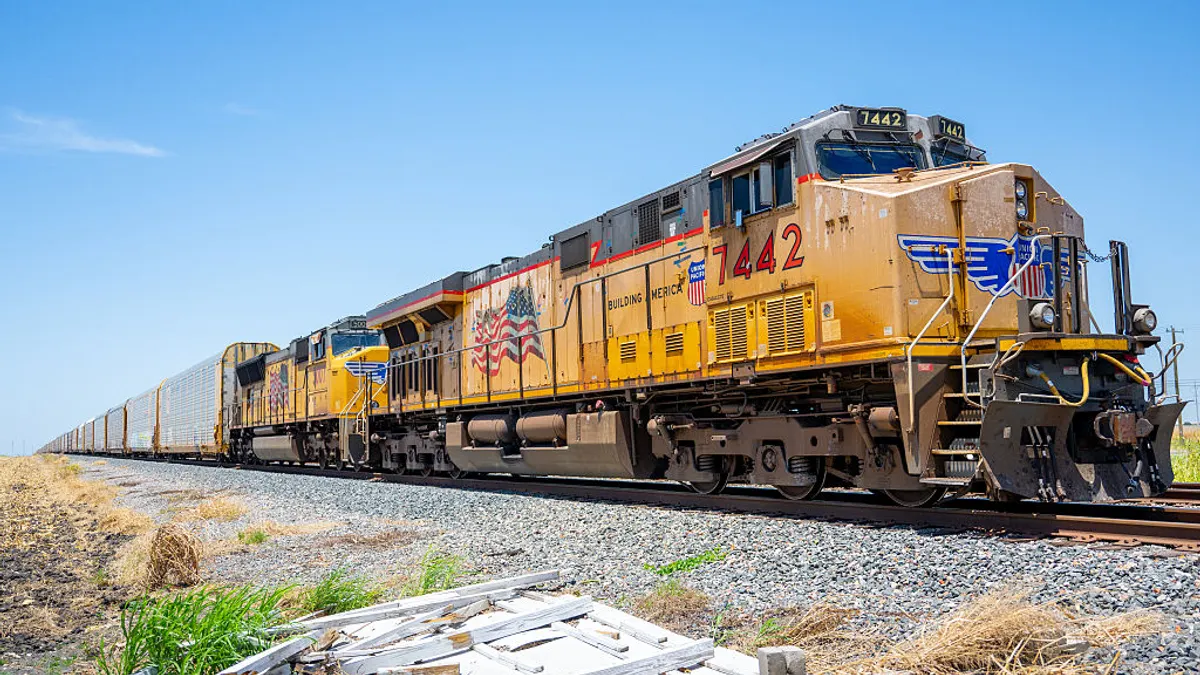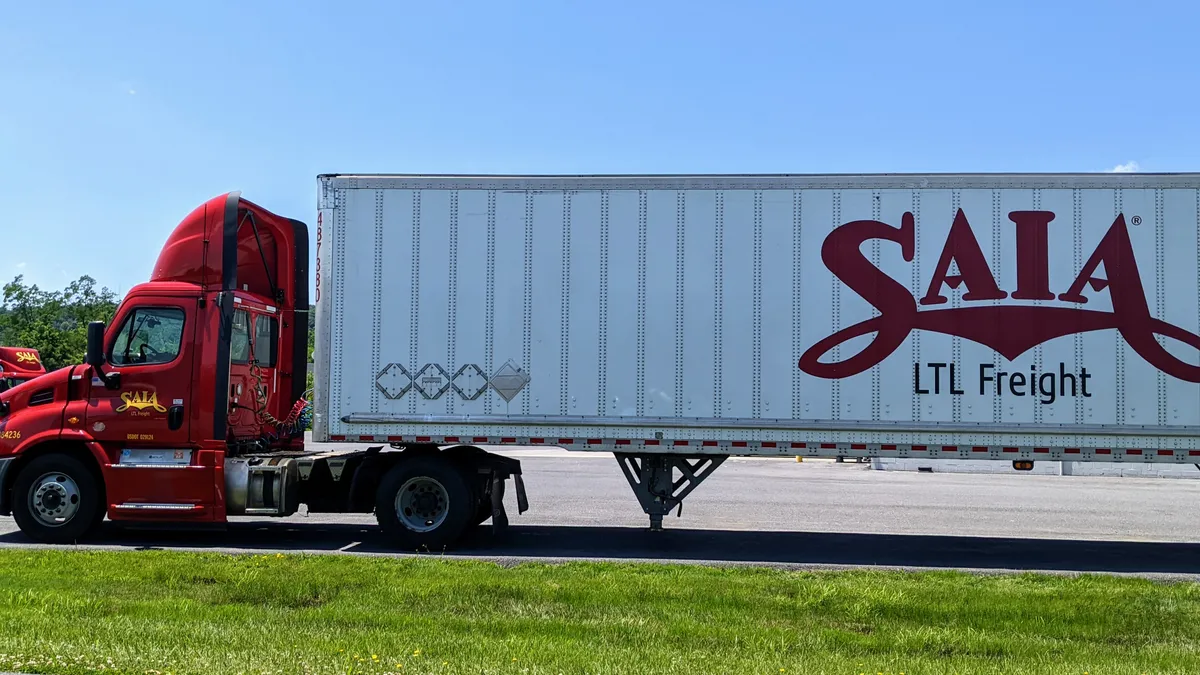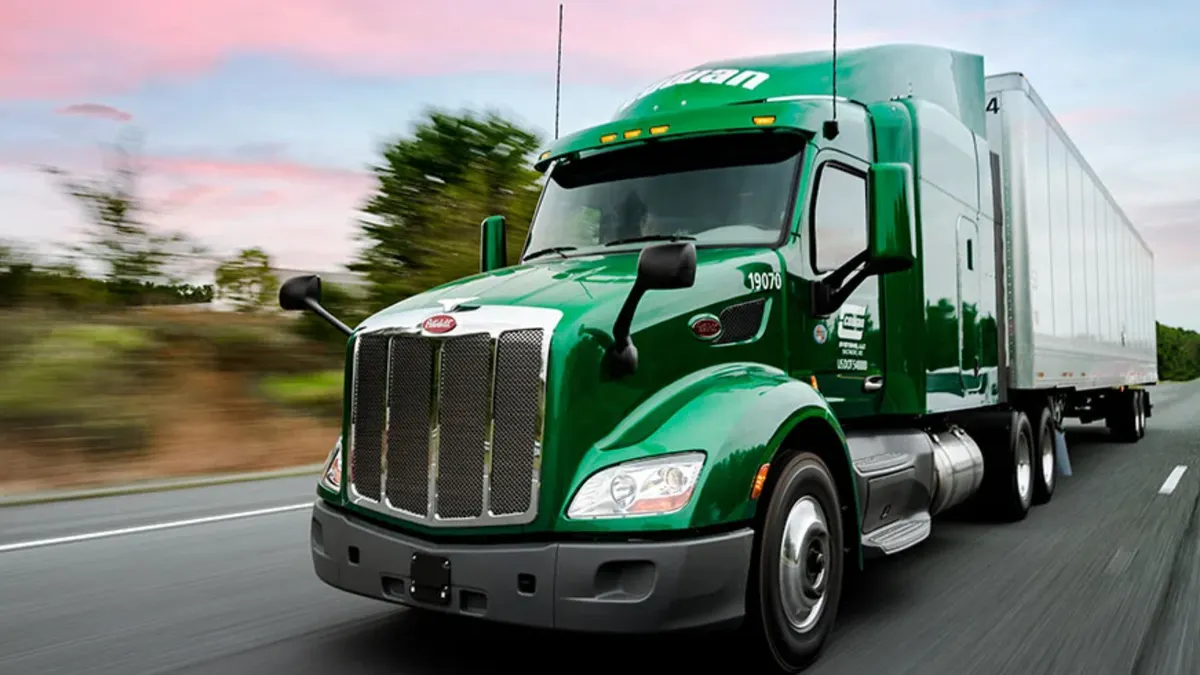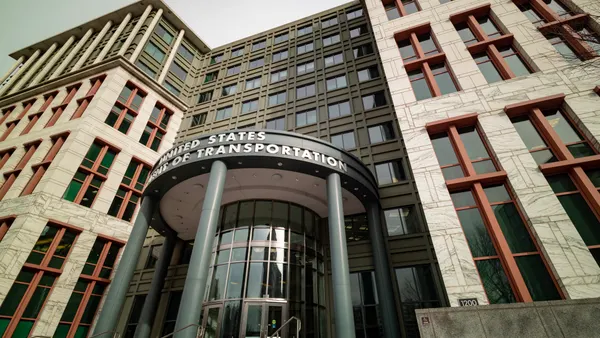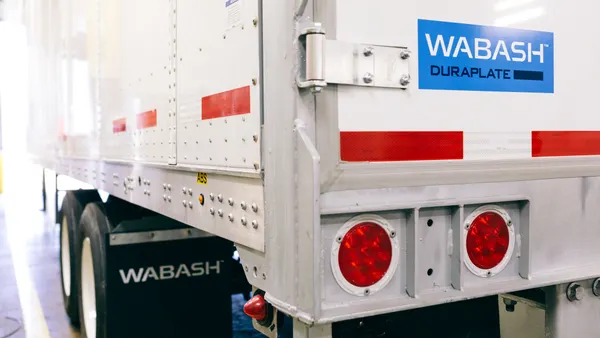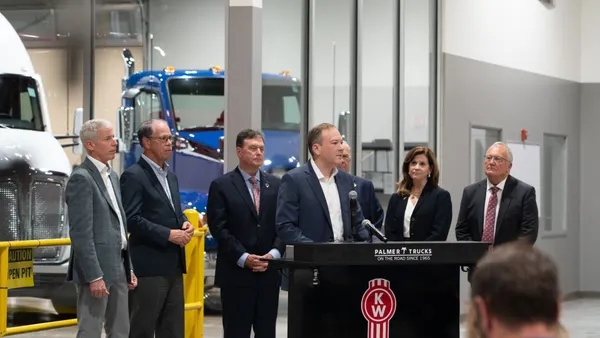Dive Brief:
- Union Pacific and Norfolk Southern plan to launch an intermodal service connecting Louisville, Kentucky, to western and southern markets, starting mid-October, according to a Sept. 15 press release.
- The new service aims to offer truck-competitive transit times for customers across industries, including automotive, consumer goods, food and beverage, healthcare and manufacturing, per the release.
- The gateway will connect Louisville to Los Angeles; Lathrop, California; Seattle; Portland, Oregon; Salt Lake City and Houston. All interchanges between Union Pacific and Norfolk Southern will occur in Kansas City.
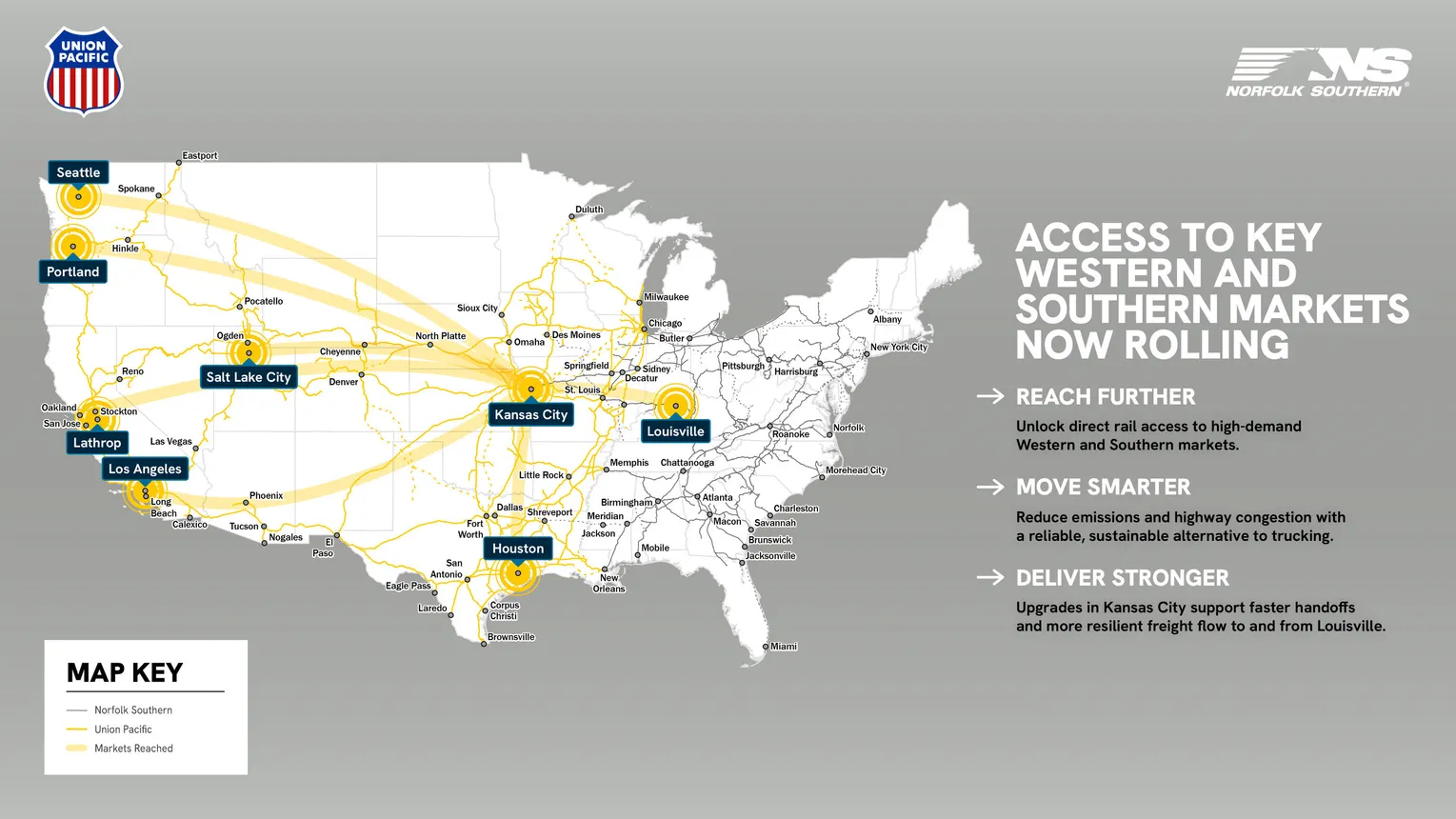
Dive Insight:
Both railroad giants have made several rail infrastructure investments to help support the launch.
Since 2021, UP has invested $1.4 billion in intermodal products, per the release. From that time period, the company opened four terminals and modernized 12 others to support market demand and compete with trucking transport.
UP’s new Kansas City Intermodal Terminal, which opened in August, provides an interchange point that connects domestic and international shipments of grains, consumer goods, refrigerated products and auto parts in the Midwest region to major markets across the U.S. The improvements help domestic containers move 25% faster, saving up to 25 hours of transit time from Southern California to the Kansas City Intermodal Terminal, per the release.
Meanwhile, Norfolk Southern is working to strengthen its presence in Louisville. The railroad has recently modified its terminal footprint to expand parking and track capacity to meet growing needs in the domestic market. The company also has an extensive intermodal network in the eastern U.S. with 54 terminals connected to major ports on the Atlantic Coast, Gulf Coast and Great Lakes.
The two railroads are strengthening their service offerings as both gear up for a potential network merger. Both aim to close the transaction in early 2027 and still need to seek approval from the Surface Transportation Board. The combination could help reduce the need for truck transfers in Chicago.


